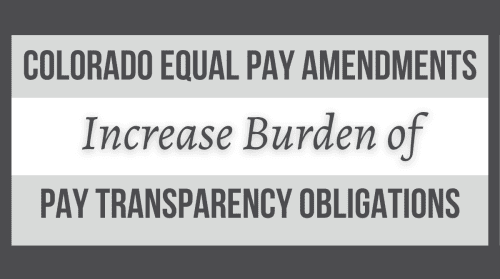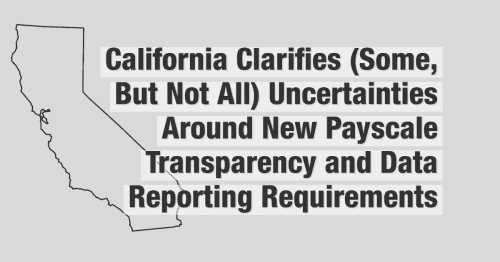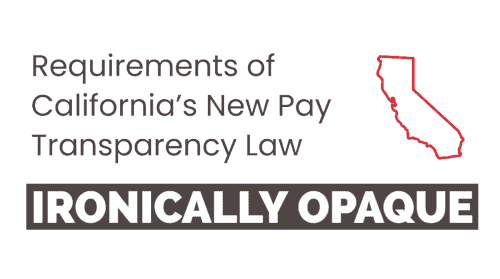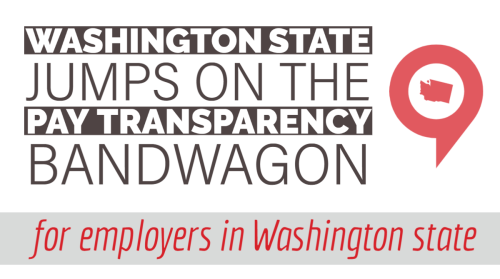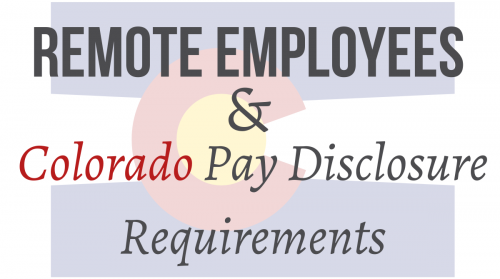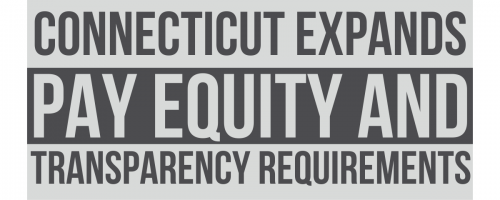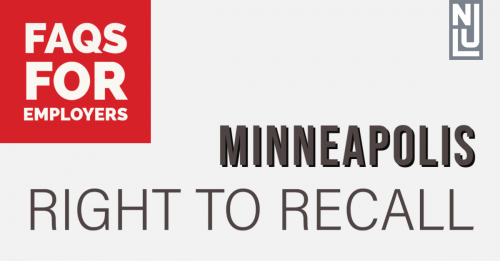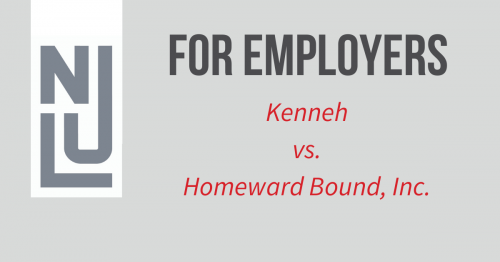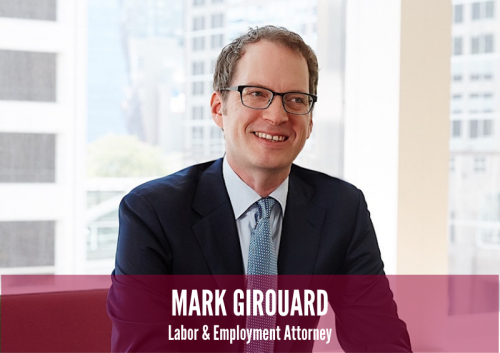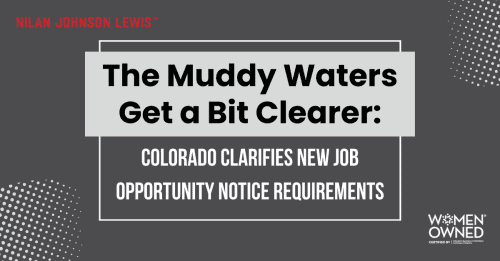
Posted February 15, 2024 with Tags The Equal Pay Advisor
The Muddy Waters Get a Bit Clearer: Colorado Clarifies New Job Opportunity Notice Requirements
As we previously reported here, effective January 1, 2024, Colorado’s Equal Pay for Equal Work Act (the “Act”) was amended to impose new, administratively burdensome job opportunity, post-selection, and career progression notice requirements on employers. Colorado’s Department of Labor and …
